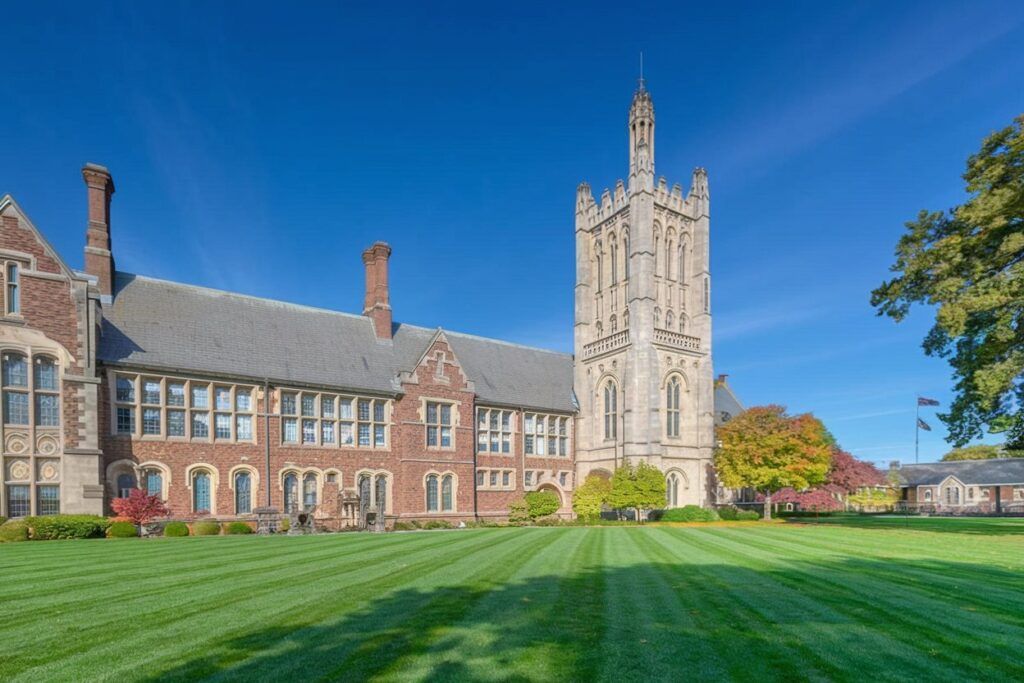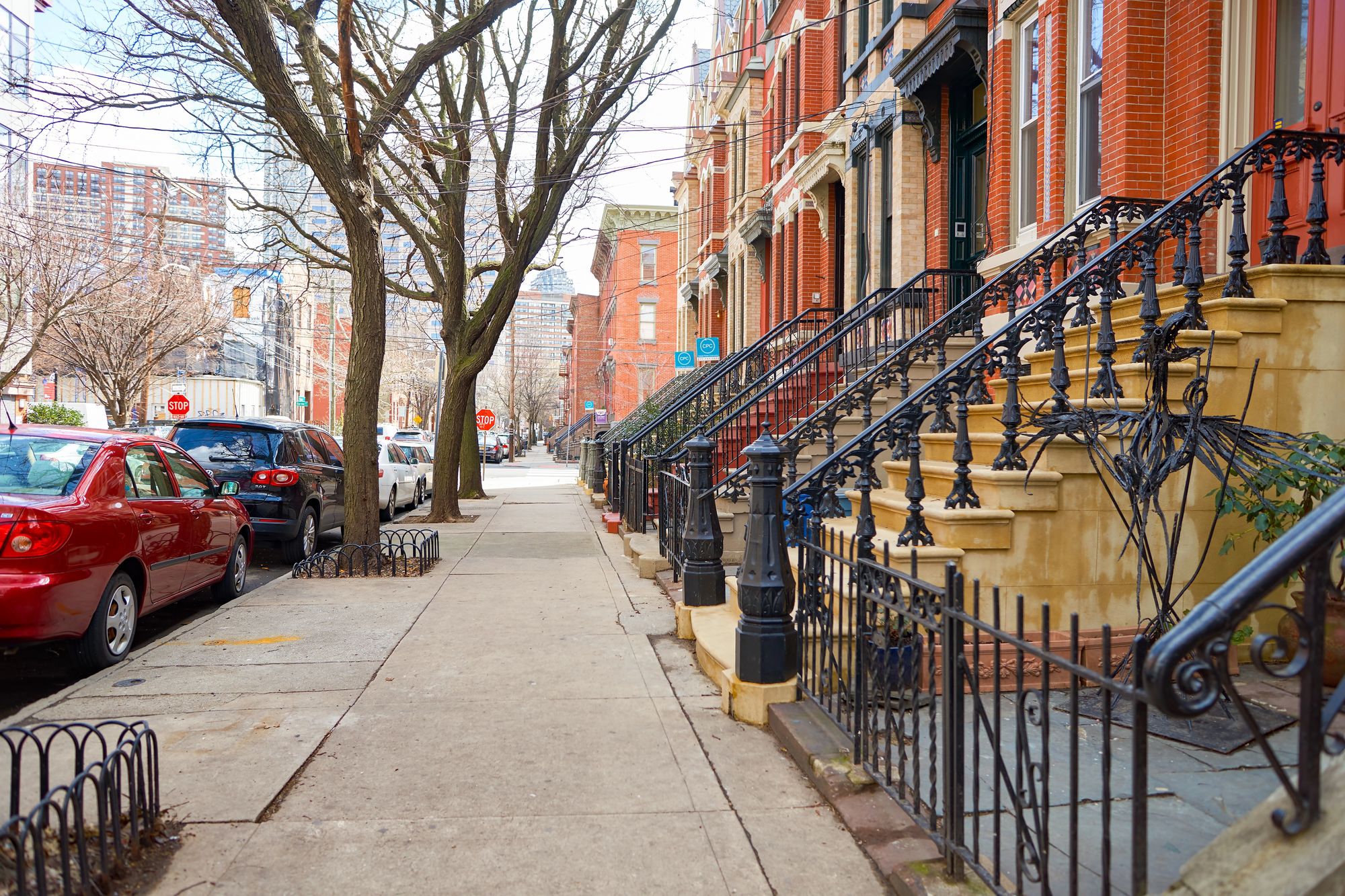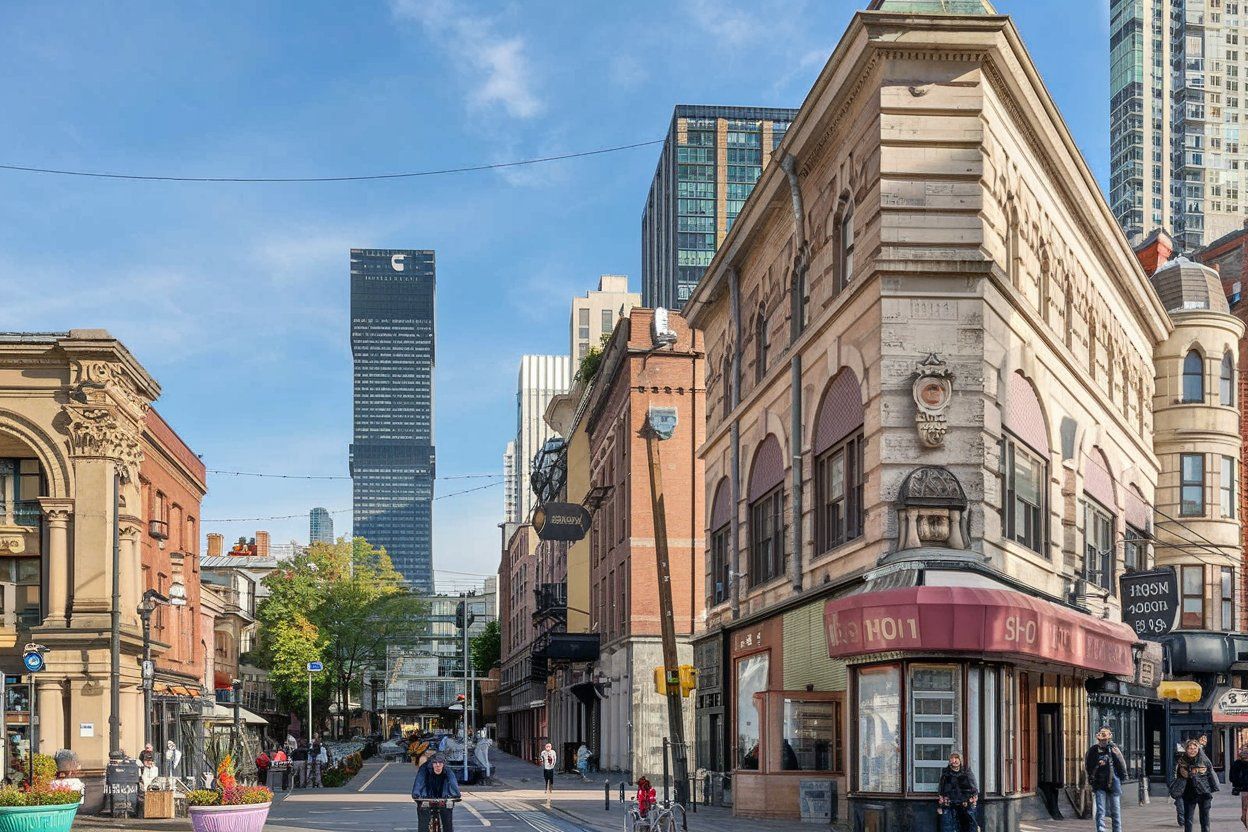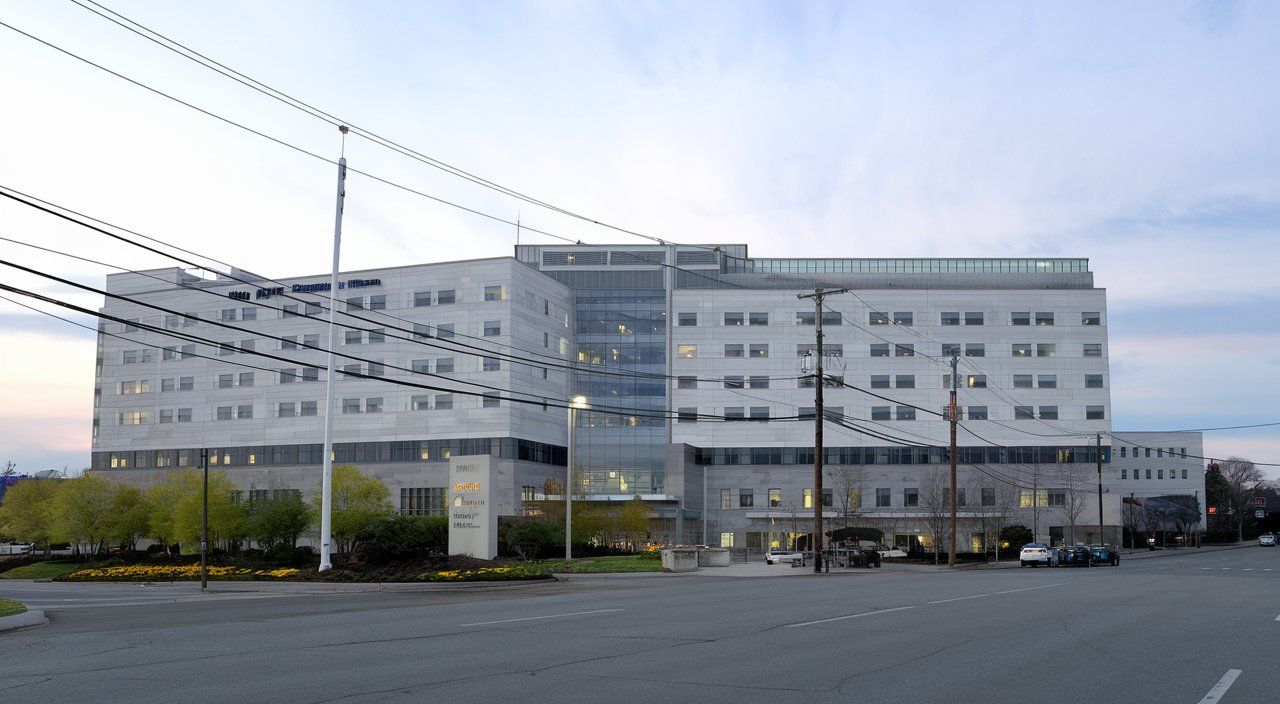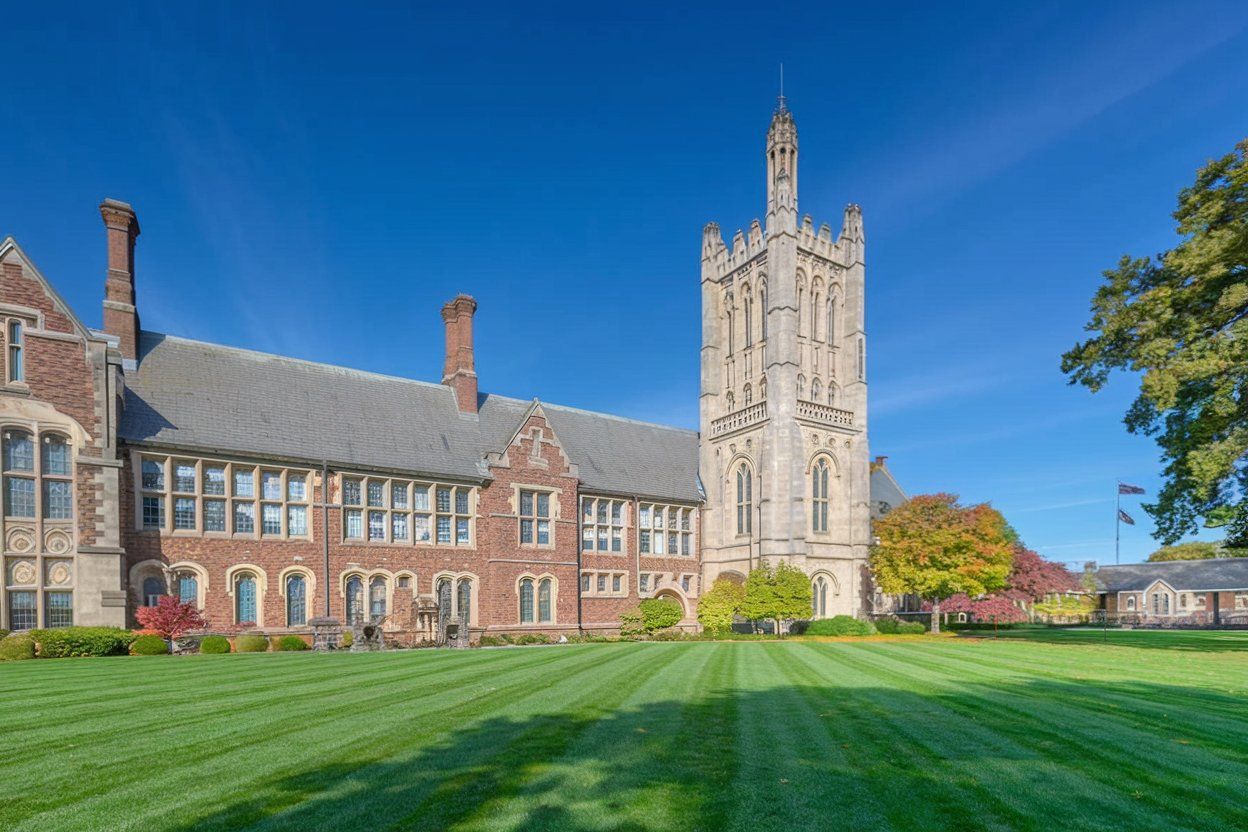Jersey City has a pretty lively higher education scene. New Jersey City University really stands out, offering 59 undergrad programs, 21 graduate degrees, and 2 doctoral tracks for students looking to move up the ladder. They’ve split their offerings into four colleges: Arts and Sciences, Business, Education, and Professional Studies.
But NJCU isn’t the only game in town. Saint Peter’s University, right on John F. Kennedy Boulevard, offers a bunch of undergrad and grad programs. Then there’s Hudson County Community College, a solid resource for folks looking for a more affordable or flexible start. Broaden your search a bit and you’ll find 172 colleges in the region, including 101 private schools—so yeah, options aren’t in short supply.
Get a discount of 15% to 70% on accommodation in Jersey City! Look for deals here:
Jersey City Hotels, Apartments, B&Bs
These Jersey City schools give you the benefit of a quality education with NYC just across the river. That means tons of internships and job possibilities, which is kind of a big deal. Whether you’re after a two-year degree or something more advanced, you’ll find a path here that lines up with your goals.
Overview of Universities in Jersey City, NJ
Jersey City’s higher ed scene is diverse and serves thousands of students chasing different ambitions. You’ll find both public and private institutions, each with their own specialties and degree options.
Types of Institutions
Jersey City’s got a mix. New Jersey City University (NJCU) is the main public university, rolling out 59 undergrad and 21 grad programs, plus a couple of doctoral tracks and certificates for career advancement.
Saint Peter’s University covers the private sector, keeping things personal with smaller class sizes. Both schools offer a range of majors—liberal arts, business, education, and more.
And it’s not just four-year schools. Community colleges and specialized programs add flexible options for people with different needs or life situations.
Public vs. Private Universities
New Jersey City University is the main public player here. It’s been around since 1927 and serves over 4,200 undergrads. Public means tuition’s usually more reasonable, especially if you’re a Jersey resident.
NJCU splits its academics into:
- College of Arts and Sciences
- School of Business
- College of Education
- College of Professional Studies
Saint Peter’s University is the private alternative. Smaller student body, more tailored programs, and those famously small class sizes. Private schools don’t get state funding, so they lean more on tuition, but Saint Peter’s says most undergrads get financial aid.
Importance of Higher Education in Jersey City
Colleges and universities do more than just educate—they fuel Jersey City’s economy and culture. They bring in jobs, attract young people, and add to the city’s energy.
Experiential learning is a big deal here. At Saint Peter’s, for example, students get real-world experience that goes beyond textbooks. That’s a boost for anyone eyeing the job market.
Being so close to New York City is a real advantage. Students can land internships and jobs across the river, while possibly dodging some of NYC’s sky-high living costs.
These schools also open doors for Jersey City’s diverse population, with programs that serve everyone from new high school grads to adults looking to level up their careers.
Major Universities in Jersey City
Jersey City’s got several strong higher ed options for students in all kinds of fields. These schools blend academics, culture, and real-world prep.
New Jersey City University (NJCU)
NJCU, a public university with roots back to 1927 (used to be Jersey City State College), sits right in the city’s heart. It serves over 6,000 students, undergrad and grad combined.
With 59 undergrad and 21 grad programs (plus two doctorates), NJCU’s organized into four main colleges: Arts and Sciences, Business, Education, and Professional Studies.
What’s cool about NJCU? It’s all about diversity and accessibility. The campus reflects Jersey City’s mix of cultures, making it a genuinely lively place to learn.
Classes usually stay small, so you actually get to know your professors. There’s a big focus on hands-on learning, whether that’s internships or community projects.
Hudson County Community College
Hudson County Community College (HCCC) offers affordable education and job training to locals and folks from nearby. Their modern campuses are scattered across the city, making it easy to get to class.
You can earn associate degrees or certificates in areas like:
- Business
- Culinary Arts
- Health Sciences
- Liberal Arts
- STEM
HCCC’s culinary program gets a lot of buzz, thanks to top-notch facilities. They also have strong transfer agreements with four-year schools, so you can start here and finish your bachelor’s elsewhere.
Plenty of students get financial aid, and the student body is super diverse. It’s a welcoming place, no matter your background.
Saint Peter’s University
Saint Peter’s University, a private Jesuit school founded in 1872, sits in the Bergen section of Jersey City. It blends liberal arts with career prep, all in a values-driven setting.
Classes are small—like, 18 students on average. They offer a bunch of undergrad majors and grad programs, and nearly all undergrads get some financial aid.
Saint Peter’s really leans into experiential learning—around 70% of students do internships, research, or service projects. The Jesuit tradition means they care about the whole person, not just grades.
Campus life? Division I sports, student clubs, and lots of community service. And being in the city means you’re just a quick trip from NYC’s culture and jobs.
Other Notable Institutions
Some big-name schools aren’t based in Jersey City but still have a presence here. Rutgers University, for example, offers extension programs so locals don’t always have to trek to the main campus.
A lot of students also commute to nearby schools like:
- Stevens Institute of Technology (Hoboken)
- NYU
- Pace University
- CUNY schools
Living in Jersey City while studying elsewhere is common, and public transit makes it pretty painless.
Online and hybrid classes from these schools are more popular than ever, so you can study on your own terms and still enjoy Jersey City life.
Admissions Process
Getting into NJCU isn’t too daunting. The school has an acceptance rate around 89%, so it’s pretty open while still keeping some standards.
Application Requirements
To apply as a first-year student, pick between NJCU’s own application or the CommonApp—whichever’s easier for you.
You’ll need your high school transcript. That’s what the admissions folks use to see if you’re ready for college-level work.
NJCU looks at the whole picture, not just your grades. They consider your academic background, activities, and your potential to do well there.
They don’t list a specific GPA requirement, but keeping your grades up definitely helps.
SAT and ACT Considerations
Submitting SAT or ACT scores can give your application a boost. Check where your scores fall compared to NJCU’s middle 50% range.
If your scores are in the ballpark, it’ll help. But remember, they take a holistic approach—test scores are just one piece. Even if your scores aren’t perfect, strong grades or other achievements can make you stand out.
The university looks at your whole academic story, not just test results. That lets you show off your strengths in different areas.
Application Deadlines
Make sure you know NJCU’s application deadlines when you’re applying. Missing them can mean missing out.
They probably offer different cycles—regular, maybe early action or early decision. Each has its own deadline.
Best bet? Check NJCU’s admissions website for the latest info, since dates can change.
It never hurts to get your application in early. That way, if something goes wrong, you’ve got time to fix it.
Transfer Admissions
NJCU welcomes transfers from both two- and four-year schools, as long as your previous college has proper accreditation.
Transferring lets you use your existing credits, so you’re not starting over. That saves time and money.
They’ll look at your college transcript, not your high school record. Your college GPA is what matters most.
How many credits transfer? It depends on your courses and how they fit with NJCU’s curriculum. It’s smart to talk to an admissions counselor for a credit evaluation before you apply.
Academic Programs and Degrees
Jersey City schools offer a ton of academic paths, from bachelor’s to doctoral programs. Whether you want something specialized or broad, you’ll find an option that fits your career goals.
Undergraduate Degrees
NJCU has 59 undergrad programs across lots of fields. Psychology, Biology, and Criminal Justice are especially popular. These programs set you up for different careers and give you hands-on experience along the way.
Saint Peter’s offers a solid lineup of bachelor’s degrees too. Both schools organize majors into specific colleges, like NJCU’s College of Arts & Sciences, so you can focus your studies.
Check out their minors and special programs if you want to customize your education. Many majors include internships with NYC businesses, which is a great way to build your resume before you even graduate.
Associate’s Degree Options
Hudson County Community College (HCCC) leads the way for associate degrees in Jersey City. These two-year programs are affordable and designed to get you working quickly or to set you up for a transfer.
Popular tracks include:
- Business Administration
- Computer Science
- Criminal Justice
- Nursing
- Early Childhood Education
A lot of HCCC students move on to NJCU or Saint Peter’s to finish their bachelor’s, thanks to smooth transfer agreements. That makes the jump from associate to bachelor’s pretty painless.
Associate degrees usually take about two years and cost a lot less than four-year programs. Evening and weekend classes make it doable even if you’re working.
Graduate Programs Available
Jersey City universities have a solid lineup of grad programs. NJCU offers 21 master’s and two doctoral degrees, covering education, business, arts, sciences, and more.
Saint Peter’s has grad programs aimed at working professionals. Both schools offer evening, weekend, and online classes to fit busy schedules.
Some of the main grad credentials:
- MBA
- MA in Education
- Master’s in Criminal Justice
- Doctorates in Educational Leadership
- Professional certificates for career moves
Certificates are worth mentioning—they deliver targeted skills in less time than a full degree, so you can get promoted or change careers faster.
You’ll usually need a bachelor’s and some relevant experience to get into grad programs. Depending on your pace, you can finish in one to three years.
Popular Fields of Study
Jersey City universities cover a wide range of programs to match career goals and interests. You’ll find both classic majors and newer fields with good job prospects.
Business Administration and Accounting
Business is always a hot pick. NJCU offers tracks in Finance, Management, and Marketing. These majors get you ready for corporate jobs, starting your own business, or working in finance.
Accounting covers financial reporting, audits, and taxes. Many programs include internships in Manhattan, so you can get real-world experience before you graduate.
The business curriculum usually hits:
- Financial management
- Marketing
- Ethics
- Strategic planning
- Data analytics
A lot of classes are offered evenings or online, which is great if you’re working while studying.
Nursing and Health Sciences
Healthcare programs are booming in Jersey City. You’ll find everything from BSN degrees for future nurses to advanced studies in nursing leadership and research.
Population Health and Exercise Science are also options at local schools. These programs prep you for jobs in hospitals, clinics, or community health.
Nursing programs include:
- Clinical rotations at local hospitals
- Simulation labs with up-to-date tech
- NCLEX prep
- Specializations in pediatrics, geriatrics, critical care
Health science degrees also cover public health, nutrition, and preventive care. Being so close to big medical centers in NYC means students get strong clinical placements and hands-on experience.
Criminal Justice and Psychology
Criminal Justice draws plenty of students at Jersey City schools. The programs get into law enforcement, corrections, and how the court system works. After graduation, a lot of folks head into police work, federal agencies, or even decide to tackle law school.
Psychology majors dig into human behavior and mental processes. You’ll cover topics like research methods, cognitive psychology, and different therapeutic techniques. These programs can get you ready for grad school or help you land an entry-level job in human services.
Both fields offer:
- Research projects with faculty
- Local internships
- Guest speakers from the profession
- Cross-disciplinary classes
National Security Studies programs at area universities focus on homeland security and emergency management, which fits the metro area’s job market needs.
Arts, Literature, Economics, and Communications
Creative and analytical majors really have a home in Jersey City’s varied academic scene. Art students work in studios, study art history, and try their hand at digital media. Literature courses help you sharpen your thinking and communication by diving into a range of texts.
Economics majors mix math modeling with social science. You’ll figure out how to analyze markets, weigh policies, and get a grip on the global financial scene.
Communications degrees can set you up for roles in:
- Journalism
- Public relations
- Social media management
- Corporate communications
- Broadcasting
Jersey City’s close ties to New York’s media, publishing, and finance worlds mean more internships and networking. Study abroad is also on the table, with several universities offering exchange programs to broaden your horizons.
Financial Aid and Scholarships
Paying for college is tough, but Jersey City schools have a lot of financial support options. Students can tap into federal, state, and school-based aid to help with the bills.
Federal and State Aid
Start with the Free Application for Federal Student Aid (FAFSA). It’s your ticket to federal grants, loans, and work-study gigs. The Pell Grant is a big deal since you don’t pay it back.
New Jersey chips in with state aid for those who qualify. About 48% of students at New Jersey City University get state grant money, which can really take the edge off tuition.
The Higher Education Student Assistance Authority (HESAA) runs several state programs, including the NJBEST Scholarship for families using New Jersey’s 529 College Savings Plan. If you’ve been saving, you might get extra scholarship funds as a reward.
Scholarships in New Jersey
There are tons of scholarships in New Jersey for all sorts of students. These awards can seriously cut down your college costs—no debt attached.
Some types of NJ scholarships:
- Merit-based (good grades)
- Need-based (financial need)
- Field-specific (certain majors)
- Community service
- Diversity awards
Local businesses, community groups, and Jersey City foundations also hand out scholarships. These sometimes have less competition than national ones, so your odds improve.
Keep an eye on deadlines and requirements. Most scholarships want you to keep your grades up if you want the money to keep coming.
Institutional Financial Assistance
Jersey City universities kick in a lot of their own aid. New Jersey City University (NJCU) gives out over $20 million in scholarships, grants, and loans every year.
Roughly 77% of NJCU students get some form of institutional grant aid. That’s a pretty clear sign they want to make school doable for everyone.
Saint Peter’s University looks at your FAFSA to figure out your aid package. That might include:
- University scholarships
- Need-based grants
- Work-study jobs
- Student loans
When you’re checking out schools, make time to meet with financial aid counselors. They’ll walk you through your package and might point out funding you didn’t even know existed.
If your financial situation changes, don’t be shy about asking for a review. Many schools have appeal processes for financial aid.
Campus Life in Jersey City
Jersey City gives students at New Jersey City University a lively campus vibe. The university mixes city energy with a sense of community—think lots of housing options, student groups, and real connections with the city.
Student Housing
Living on campus at NJCU costs about $16,843 a year, based on the latest numbers. Dorms put you close to campus and city action.
Plenty of students pick off-campus spots in Jersey City’s neighborhoods. You’ll find a range of prices and living styles depending on the area.
Business students often go for housing near the financial district and the NJCU School of Business. That way, you’re right by potential internships and networking events.
Housing runs the gamut from dorms to apartments. Most folks try to balance cost and convenience. And in a city setting, you’re never far from food, shops, or public transit.
Clubs and Student Organizations
NJCU has a ton of clubs and organizations to keep things interesting all year. You’ll find everything from academic groups to cultural clubs that reflect the campus’s diversity.
Popular activities:
- Student government
- Academic clubs
- Cultural and identity groups
- Sports and fitness
- Professional societies
Sports matter here, too—there’s room for serious athletes and casual players. Join a team or just play for fun.
Clubs put on events, workshops, and socials that help you meet people. These groups also give you leadership experience and a chance to network outside of class.
Diversity and Community Engagement
NJCU’s student body is as diverse as Jersey City itself. You’ll meet people from all sorts of backgrounds, which makes for a richer learning experience.
The school encourages community service and hands-on projects. These activities connect you with local neighborhoods and help you build real-world skills.
Some classes include community work, so you’ll learn by doing and see how your studies apply off campus.
Student-led groups often take on social issues and organize volunteer projects. You’ll build civic awareness and find others who care about the same things.
Being in the city opens doors to all kinds of organizations and communities. It’s a great setup for internships, volunteering, and getting started on your career.
Career Opportunities After Graduation
Jersey City’s universities set students up for jobs with a range of career services. Grads benefit from being so close to New York’s job market, but there are plenty of opportunities right in Jersey City, too.
Internship Programs
Local universities team up with businesses in Jersey City and NYC to offer solid internship options. New Jersey City University (NJCU) has internship programs that help students get hands-on experience before they graduate.
These internships often turn into job offers. Companies in finance, healthcare, and tech actively recruit local interns.
You’ll find paid and unpaid positions throughout the year—not just in the summer. Career centers keep databases of openings for current students and recent grads.
Job Placement Services
Jersey City university career centers offer job placement help. Services include resume reviews, interview prep, and job fairs with local employers.
NJCU and other schools have job boards full of openings for new grads. Glassdoor lists over 450 jobs for college graduates in Jersey City right now.
You can also use:
- On-campus recruiting events
- Career counseling
- Job search workshops
- Mock interviews
Many schools keep helping alumni for years after graduation, so you’re not on your own once you get your degree.
Alumni Networks
Strong alumni networks can give you a real edge in the job hunt. Jersey City universities keep active alumni groups that lead to job tips and mentorship.
Through these connections, you can:
- Attend networking events
- Join industry-specific groups
- Meet employers who like hiring grads from their own school
- Find mentors in your field
Alumni associations run events focused on careers, and a lot of grads land their first jobs through these contacts.
Online groups—like LinkedIn communities for Jersey City university alumni—make it even easier to network. People share job leads and advice, helping new grads get started.
Conclusion
Jersey City has some solid higher education choices, even if Princeton—New Jersey’s big name—sits outside city limits.
Right in town, you’ve got Saint Peter’s University, Hudson County Community College, and New Jersey City University (NJCU).
NJCU really makes waves for social mobility, snagging the top spot in New Jersey and landing in the national top 20, at least according to CollegeNET. That says a lot about how NJCU helps students climb the economic ladder.
Lately, NJCU’s been dealing with money troubles, so they’re planning to merge with Kean University. The idea is to pool resources and keep educational opportunities going strong.
Get a discount of 15% to 70% on accommodation in Jersey City! Look for deals here:
Jersey City Hotels, Apartments, B&Bs
Stevens Institute of Technology, just over in Hoboken, is another great pick—especially if you’re into tech or engineering.
Thinking about where to go? Weigh your interests, your wallet, and what you want out of your career. Every school brings something different to the table, so it’s worth poking around to see what fits you.
If you can, visit the campuses to get a sense of the vibe and what’s on offer. Can’t make it in person? Most schools have virtual tours these days.
Oh, and don’t forget to check out financial aid options. That can really change the whole college equation.

